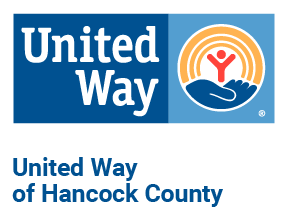
Findlay, Ohio (March 13, 2021) - United Way of Hancock County is getting a new home, effective April 1.
The agency is moving into part of the Kan Du Group building at 318 W. Main Cross St. Angela DeBoskey, CEO of United Way, said the change in part will lower some of United Way's operating costs.
“For us currently, there are a lot of businesses and nonprofits reimagining how they’re doing business and what they’re doing,” DeBoskey said. “Our goal being measurably improving people’s lives in Hancock County, we want to make sure we’re doing the best job that we can.”
The agency will be located in a 2,000-square-foot area on the second floor of the Kan Du building, with access from both a front and back entrance.
DeBoskey said United Way staff is excited about the move. For more than 15 years, the agency has been housed on Stanford Parkway.
“The size fits us,” she said. “Our building over there, we’ve only been using about a quarter to a third of it. It just makes sense. And we want to get as much of our resources out in the community as possible. So how do we do that? These guys are making it easy for us.”
Kelli Grisham, superintendent at the Hancock County Board of Developmental Disabilities/Blanchard Valley Center, and Michael Chiarelli, CEO of Kan Du Group, said they’re happy to be neighbors with United Way.
“It’s an absolute win for Kan Du,” Chiarelli said.
Kan Du Group was formerly known as Blanchard Valley Industries, located at Blanchard Valley Center. When it transitioned into a private company called Kan Du Group, the board of developmental disabilities purchased the 12,600-square-foot building that had housed the former Rocking U restaurant.
Kan Du serves about 120 individuals from Hancock, Wood, Wyandot, Hardin and Putnam counties, said Chiarelli. In addition to the West Main Cross Street building, there's also a production facility on County Road 99.
By the time Grisham took over as superintendent at the end of 2015, a grant had been secured to provide an art studio in the building for people with developmental disabilities. The studio, on the first floor of the building, was finished in 2016.
“But when I say the studio was finished, it was just the studio, just one section,” she said. “The other half of the building downstairs and then all of the upstairs, nothing was done to that.”
The board later decided to renovate. Kan Du was originally going to occupy the entire building with an art studio and day habilitation center on the first floor, and offices and conference rooms upstairs. Grisham said she and the board later decided to rent the conference rooms out to community members in need of meeting spaces.
Kan Du’s administrative offices have since been moved into the conference rooms, freeing up space for United Way.
DeBoskey said United Way looked at five or six different businesses and nonprofits in town that had space and were willing to share.
"This, we felt, was the best fit for mission alignment as well as for office space, being downtown," she said.
DeBoskey said she’s especially pleased by the match because Kan Du and United Way are both passionate about serving the community.
“Years ago, I was introduced to somebody who said a community’s health can be thought of kind of like a three-legged stool. So we have corporations and business is one leg of it, nonprofit is another, and then the public or government as a third,” she said. “So when there’s balance in a community between those three areas, then it has a healthy aspect for the rest of the community.”
“So for me, it’s exciting to see the nonprofit world working with the public sector to be able to impact part of our community like this,” DeBoskey added.
She said the current United Way building will be sold and the money reinvested.
“I think all three of us are constantly looking at how we can improve services and how we can use the dollars that we have most effectively,” she said. “I’d say with the changes since March of 2020, we’re all looking at office space a little bit differently now. So what can we accomplish with a little less space? What can we accomplish working from home and working from a space like this?”
A business that was undergoing some changes donated office furniture to United Way, while members of a local church helped move the furniture.
“So we’re doing it in a collaborative way that encourages me and hopefully will encourage others that are having to walk through these paths, too,” DeBoskey said.
Grisham feels the move will make Kan Du’s clients feel even more connected to the community.
“I think the staff that comes here, people that come here for meetings, our folks will get to experience some of that — again, that connection,” she said. “I’m very proud to say that those individuals will go home and tell their family and their friends, 'United Way’s in our building, and it’s really cool.'”
DeBoskey sees the same thing happening for United Way, but in reverse.
“Our hope is that folks that come in for United Way say, ‘Hey, I wasn’t aware of all that Kan Du is doing in the community. This is great,’” she said.
